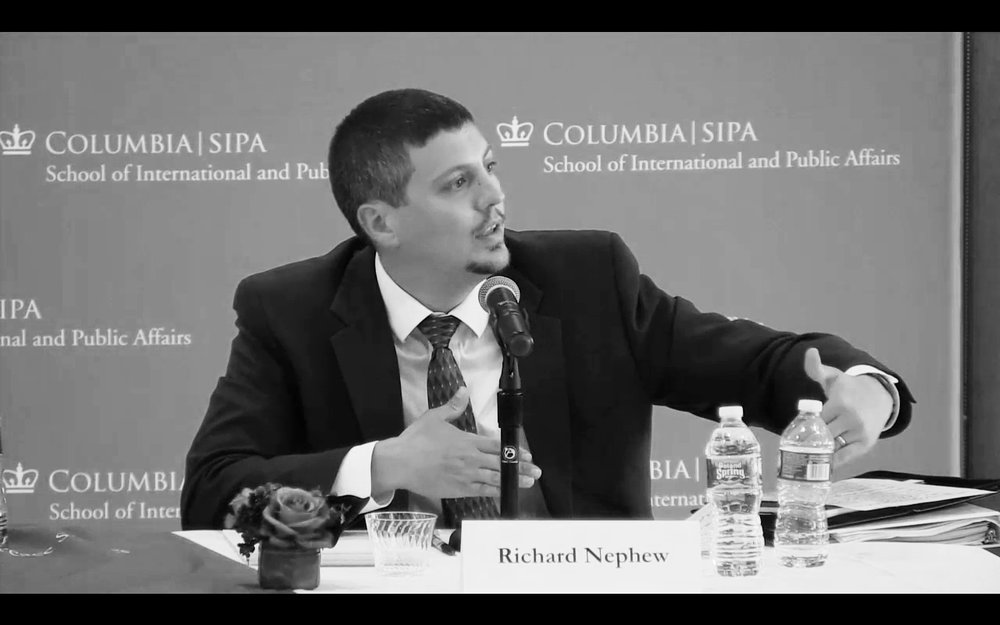Europe will not accept Trump’s conditions about the JCPOA: Nephew

TEHRAN – Richard Nephew, who served as the lead sanctions expert for the U.S. team negotiating with Iran, believes that neither Europe nor Iran will accept Trump’ conditions about the JCPOA.
Nephew adds that “I think that European officials would be pleased to have the kinds of measures agreed to by Iran, but the fact that Iran will not agree -- and certainly not in this context -- will mean that the Europeans will reject the attempt as prejudicial to the JCPOA.”
Fellow at the Center on Global Energy Policy at Columbia University, says “Trump will either have to back down from his demands, which is possible but increasingly hard to believe, or there will be a confrontation.”
Following is the text of the interview with Nephew:
Q: President Trump has announced that removing time limitations from Iran’s nuclear activities, unrestricted inspections and relating Iran’s missile program to the JCPOA are all necessary for the U.S. not to withdraw from the JCPOA. Will Europe bow down to these conditions? What about Iran?
A: No, I do not think that Europe will accept these conditions, much less Iran. I think that European officials would be pleased to have the kinds of measures agreed to by Iran, but the fact that Iran will not agree -- and certainly not in this context -- will mean that the Europeans will reject the attempt as prejudicial to the JCPOA.
Q: Over the past three month, the European states have made great efforts to persuade the U.S. congress and administration that a better agreement with Iran cannot be made on the ruins of the JCPOA. Will the EU and the U.S. congress be able to reach an agreement on the JCPOA that can meet Trump’s demands? What is such an agreement like?
A: I think that the EU and the U.S. Congress actually understand this issue the same way. But, Trump does not.
In other words, I think that he -- and a few of his allies in Congress and the think tank community -- are the ones who are the outliers. But, this may not matter. After all, I could have said the same thing about a number of different issues.
Q: Iran has said time and again that it will not accept any changes to the JCPOA and will not welcome any limitation on its missile program. The EU defending the Iran deal is under Trump’s pressure. How can EU meet Trump’s demands but at the same time allow Iran to reap the benefit from the JCPOA?
A: As I've said, I do not think that the EU will be able to meet Trump's demands. He will either have to back down from his demands, which is possible but increasingly hard to believe, or there will be a confrontation.
Q: What can be the EU alternative, if the U.S. withdraws from the JCPOA? If the U.S. withdraws, the situation for investment and work in Iran will get worsen. In this case, what real guarantees can be offered to Iran by the EU?
A: This is fundamentally a question for Iran: how much relief is enough to stay in the JCPOA without U.S. sanctions relief. More than a few European and Asian companies would withdraw if U.S. sanctions were to be imposed. If Iran can accept that, so long as a few companies remain, then the JCPOA may be salvageable in a rougher form.
But, if Iran will insist on no changes whatsoever to its ability to use relief, then I do not think there are sufficient guarantees that Europe can offer to keep all of its businesses in place.
Q: EU can ask EBRD bank to monitor the small and medium companies’ exchanges in order to not let the remaining sanctions be evaded. What banking guarantees can the EU offer Iran?
A: Well, I think that the real bank guarantees required is that lines of credit and whatnot will be provided. But, major banks are reluctant to do that now and will oppose in the context of U.S. sanctions pressure.
So, really, the best that can be achieved is that a few banks -- who may not mind being sanctioned by the United States -- stay in Iran while the rest leave. This, of course, assumes Europe will not impose retaliatory measures against U.S. banks and begin essentially a finance war with the United States. That is possible, but perhaps still not likely.
